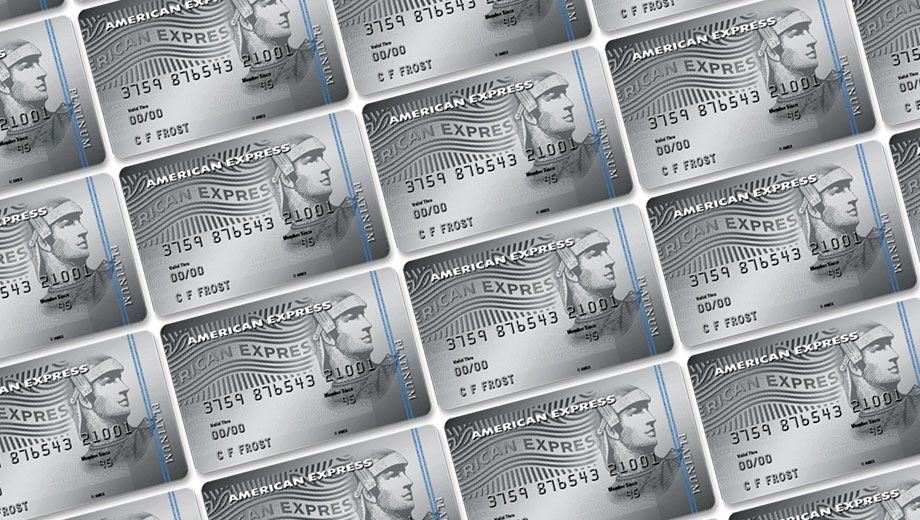AVOID: American Express Platinum Edge credit card travel insurance

Disclaimer
Executive Traveller may receive a commission when you apply for these credit cards via our links.
The information provided on this page is purely factual and general in nature. You should seek independent advice and consider your own personal circumstances before applying for any financial product.
How it compares:
Out of the credit card travel insurance offers we compared (NAB, Commonwealth Bank, Westpac, St George, ANZ and American Express), American Express' Platinum Edge credit card travel insurance policy was the poorest overall -- surprising for a card which markets itself as the premium service card brand, and incurs higher credit card surcharges than Visa or Mastercard. We rated it bad on almost every criterion we looked at, and found nothing particularly to recommend it.
Like all credit card travel insurance, trips you make are not automatically covered all year round -- you have to buy 100% of the cost of your return overseas travel tickets on the card to qualify.
Who's covered:
The cardholder, their spouse and dependent children for overseas trips of six months (but no more than 183 days of total travel in a year).
Good or bad? Average for platinum credit cards, though most cards only put a limit on the per-trip length, not the total amount of travel time in a year.
When the policy kicks in:
In order for the insurance cover to be activated, 100% of the cost of your return international travel ticket must be purchased on the Amex Platinum Edge credit card.
Good or bad? Bad -- it leaves no flexibility to pay a cash deposit to secure the flights at a travel agent if necessary. Other banks have easier-to-qualify travel insurance policies. ANZ Platinum cards, for example, cover you after you've spent $250 of trip (travel/accommodation/hire car/tour) costs on the card. Amex's policy pretty much ensures it can only ever be used for personal travel, because it can't cover trips where the travel is paid for by someone else.
Excesses:
If you run into trouble on your trip, and need to use the policy, you'll have to pay the first $500 of claims for laptops. The excess for mobile phones is only $100, while $250 is the excess for most other types of claims. Medical excess is $500 unless the insurer is contacted before $1500 in medical costs are incurred.
Good or bad? Bad -- the worst excesses of all the cards we looked at. It's particularly bad that American Express' insurer charges a $250 excess for emergency clothing and toiletries if your baggage is delayed, because most of the cards we looked at waived the excess for this extremely common claim type. The $500 excess for laptops or medical claims is also more than twice as high than the $200 average for most cards.
Medical coverage:
Medical treatment or medical evacuation, limited to $2.5million -- and medical costs over $1,500 will not be paid if you have not contacted the insurer first and got authorisation. Emergency dental is only covered for up to $1,000 in total, and will not be paid if it is anything to do with crowns, dentures or orthodontics. There is no cash-in-hospital allowance to cover incidental expenses.
Good or bad? Bad -- if you are hospitalised in a trauma emergency in the USA, your costs would rocket past $1,500 in no time, and it'd be up to American Express' insurer -- ACE Insurance in Sydney -- to decide whether it wanted to cover you. As the policy stands, you wouldn't be covered, by default. Additionally, while a $2.5million limit to medical claims may sound like a lot, lengthy medical treatment in the USA can cost millions of dollars, and all the other cards we reviewed offered unlimited medical treatment. The lack of a cash in hospital daily amount is also poor - NAB's Platinum card offers up to $15,000 cash in hospital at $100 per day.
Pre-existing medical problems:
Not covered.
Good or bad? Bad -- most credit card travel insurances offer to consider your pre-existing medical conditions on application. ANZ's Platinum card even automatically covers a list of pre-existing medical conditions, with the possibility of covering more on application.
Income protection:
Not covered.
Good or bad? Bad. Most of the credit card travel insurances we reviewed offered some form of income protection at all. For example, St George Platinum cards pay up to $1,000 per week.
Death while travelling:
Coverage for one person only - $300,000 for death, thru to $150,000 for loss of one eye.
Good or bad? Bad. Transit accident insurance is usually more generous -- for example, ANZ Platinum cards offer $750,000 for the cardholder and/or their spouse, while Commonwealth Bank offers $1,000,000 for the cardholder and a reduced amount for their spouse. On the upside, the $300,000 benefit is certain -- other banks offer high maximums, but say that if they have many of their (unrelated) cardholders or family members killed in a transport accident, they won't pay out more than a certain amount in total. American Express's Platinum Edge policy simply says it will pay out $300,000 for the death of one person -- and no more. In situations where many people are killed at once (such as in a plane crash), American Express' defined benefit might end up paying more than the seemingly higher per-person benefits from other banks, after the bank-wide maximum is divided up among all the cardholders and their family members
Accidental death:
Accidental death outside of transport accidents is not covered at all in the American Express Platinum Edge policy.
Good or bad? Bad for a platinum card. Every other card we looked at offered some accidental death benefit -- NAB's Gold Card offers $100,000 for accidental death of the cardholder, for example.
Theft/loss/damage:
Up to $10,000 per person, per year. No overall maximum stated. However, the per-item limits are really low: $1,000 per item, $500 for mobile phones or $2,500 for a laptop (bear in mind this also has a $500 excess, reducing the real pay-out to $2,000). Cash is covered up to $500; emergency clothing and toiletries due to luggage delay up to $500 total.
Good or bad? Bad - although it's good that there's no family maximum, the per-item dollar limits mean you're not covered for any type of valuable beyond relatively cheap electronics.
Rental cars:
No coverage.
Good or bad? Bad -- all the other cards we reviewed offered some coverage for rental car excess reimbursement.
Travel delays:
After 4 hours' delay, the insurance will pay out up to $500 in total, and/or $500 for a missed travel connection.
Good or bad? Bad for a platinum card -- generally, platinum cards offer around $500 per person, up to a maximum of $1,000. The missed connection cover is also very low -- in comparison, NAB's platinum card provides $3,250 worth of cover for missed connections. That being said, Amex's insurance pays out after four hours, not six like all the other insurers, which is a positive benefit. The policy also doesn't specifically exclude delays where a carrier has rescheduled a service, which is a tricky gotcha in many of the other card travel insurance policies we reviewed.
Toll free number:
The policy document only lists a Sydney local number for claims and does not say you can call toll-free.
Good or bad? Bad. It's the only policy we reviewed that didn't have a number you were invited to call reverse charges from anywhere in the world. As a result, you could be up for high extra costs from hotel or pay phones, or mobile global roaming fees if you need to contact the insurer while abroad.
What they don't cover:
Medical costs over $1,500 without prior authorisation; Dental work associated with crowns, dentures or orthodontics; Sports equipment while in use; Extreme sports; Any valuables left in checked-in baggage; Any time you put yourself in danger; No coverage for items loaned to you; any fragile item due to fire or transport accident; theft from hotel rooms unless forcible entry can be proven; anything while you were under influence of alcohol or drugs; contact or corneal lenses; dentures; glass; hearing aids; keys; musical instruments; motor vehicles or accessories; pedal cycles; pictures; photos.
Good or bad? Bad - the most worrying exclusion is medical costs over $1,500 unless first authorised by the insurer. Insurers sometimes cannot be contacted immediately by the 24 hour emergency assistance company -- for example on the weekend -- and if you require urgent medical care, you might be left paying the bill yourself. It's also surprising that glasses and contact lenses are specifically excluded; most insurers make a point of saying they are specifically included. The exclusion for theft from hotel rooms without forcible entry is also concerning -- it would count out any theft by hotel staff.
American Express Platinum Edge credit card with travel insurance:
- American Express Australia Platinum Edge credit card
annual fee $149.00, interest rate 20.49% purchases / 20.49% cash advances
American Express Australia's website about platinum credit card travel insurance:
http://www.americanexpress.com/australia/campaigns/theplatinumseries/index.shtml?
Full American Express Australia Platinum Edge Credit Card travel insurance policy PDS document:
https://secure.cmax.americanexpress.com/Internet/International/japa/AU_en/Personal/shared/files/Platinum_Edge_Insurance.pdf
This article was written based on the product disclosure statement available on the American Express website on 1st December, 2010. Insurers can change the wording of policies they are selling at any time, so be sure to read the product disclosure statement yourself before signing up. Additionally, this article should not be taken as formal financial advice. You should consult a qualified financial planner.
Disclaimer
Executive Traveller may receive a commission when you apply for these credit cards via our links.
The information provided on this page is purely factual and general in nature. You should seek independent advice and consider your own personal circumstances before applying for any financial product.

Hi Guest, join in the discussion on AVOID: American Express Platinum Edge credit card travel insurance